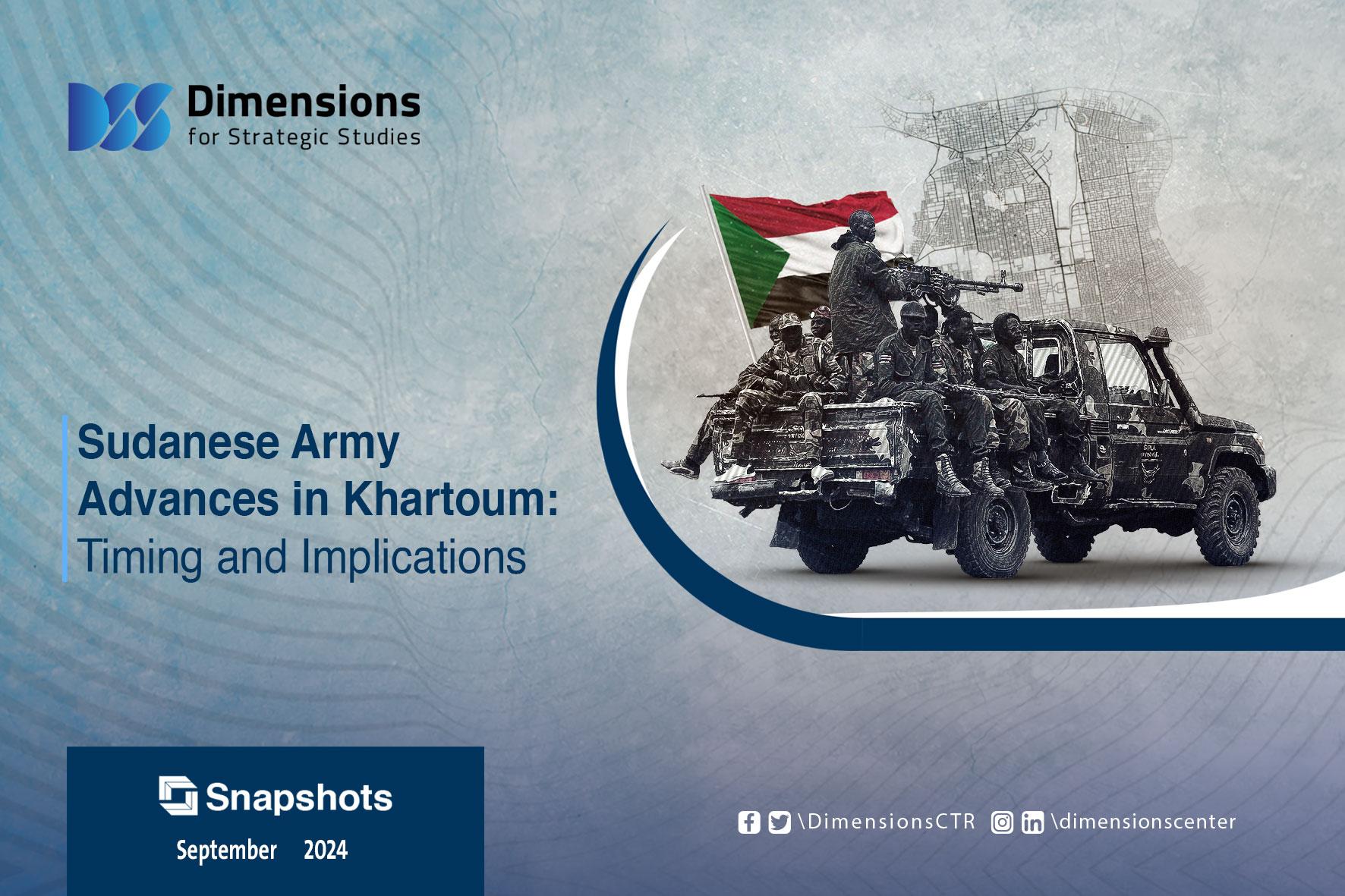
Sudanese Army Advances in Khartoum: Timing and Implications
2024-10-013243 view
On September 26, the Sudanese army launched a military operation in Khartoum, aimed at seizing the capital along with the other cities making up the Khartoum metropolitan area, Omdurman and Khartoum Bahri.
The army has been able to achieve important gains, including breaking the siege imposed by the Rapid Support Forces led by Mohamed Hamdan Daglo, known as “Hemedti”, on the army’s headquarters in the capital. It also took control of the National Public Health Laboratory (NPHL) on a key junction in the capital, and opened the roads between Omdurman and all parts of Khartoum city. The army confirmed that it would continue operations until it takes full control of the capital.
The Sudanese army had spent months paving the way for this operation, both politically and militarily, through repeated visits by army chief Abdel Fattah al-Burhan, and members of the Sovereignty Council which he heads, to China, Russia and South Sudan. The aim of this diplomatic campaign was to garner political support at the United Nations as well as military support from Russia, as well as stemming the logistical support reaching the RSF via South Sudan, which now fears that tribes allied with the RSF may rebel against Juba.
The progress the army has achieved notable for its timing, as it follows American pressure on the army and the Sovereignty Council to join ceasefire talks in Geneva in August, ignoring the military’s demands that it back the Jeddah Agreement signed in May 2023. The United Arab Emirates had been imposed as an “observer member” of the talks, despite the army’s opposition.
The army’s operation in Khartoum also comes as the RSF steps up its attempts, underway since the middle of the year, to seize the city of Al-Fasher, completing its control over the entire region of Darfur. The RSF is hoping to impose a fait accompli on the army, bring it back to the negotiating table, and force it to deal with the RSF as a legitimate party to talks rather than a ragtag rebel group.
The army, for its part, is hoping that its progress in Khartoum will strengthen its position in the conflict and persuade more political actors and tribes to disengage from the RSF, in view of the latter’s setbacks on the ground, causing a decline in international material assistance to the RSF.
Indeed, the group appears to be on the back foot, which may prompt more countries to reassess their position in the conflict—notably Ethiopia, which has recently shown signs that it is more concerned with its rebels closer to home, and has intimated to the Sudanese army that it would be open to cooperation.
That said, the army is unlikely to agree to an RSF demand, after the launch of the Khartoum operation, for negotiations to end the conflict. The army is likely to pursue a decisive military victory, and appears to believe that conditions are favorable to that end.





